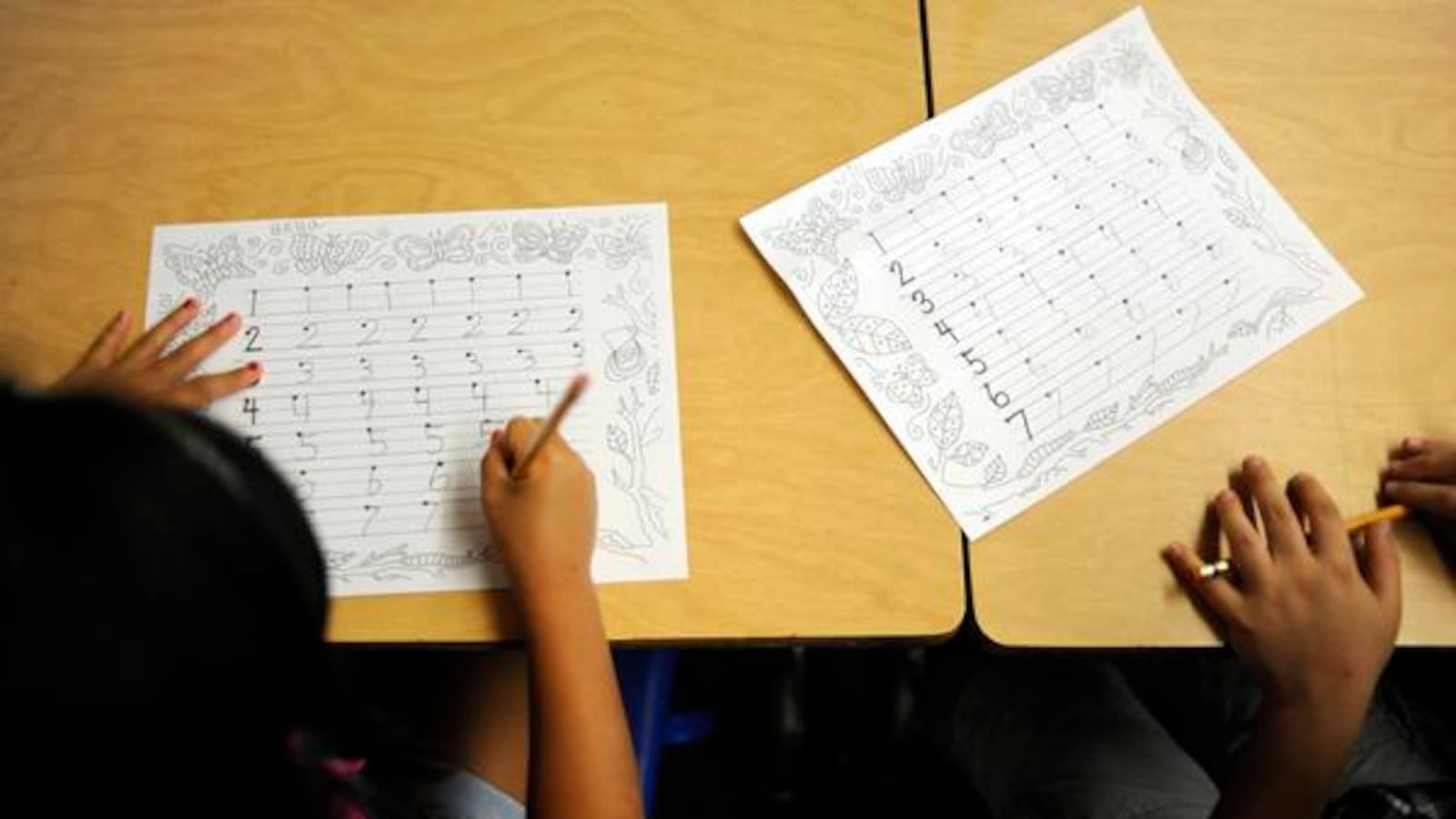Denver Public Schools is preparing to change the way it doles out funding for low-income students, upping the amount it provides schools to educate the district’s highest-needs students.
They include children who are homeless, in the foster care system and whose families receive food stamps. Such students automatically qualify for free school lunches, which is why they’re referred to as “direct-certified” students. About 29 percent of DPS students in kindergarten through 12th grade are direct-certified, according to district figures.
Next school year, DPS plans to provide schools with an extra $80 per direct-certified student. Doing so would cost the district about $1.5 million, according to officials. That money would come out of DPS’s general fund, which officials said has been slightly buoyed by overall enrollment increases and budget reductions in some central-office departments.
The $80 is in addition to the approximately $500 extra the district already provides for students who qualify for free or reduced-price lunch because their families are low-income. Two-thirds of DPS students meet that criteria, which includes students who are direct-certified.
“This is absolutely the right thing to do,” Erik Johnson, the district’s executive director of finance, said at a recent school board work session at which the plan was presented.
That’s because students facing homelessness or who are in the foster care system or whose families are significantly below the poverty line often need more help, district officials say.
While federal regulations prevent the district from tracking the state test scores of direct-certified students, DPS calculations show that schools where more than half the students are direct-certified are more likely to earn a lower school rating, which is largely based on test scores and student academic growth. Of the 24 DPS schools where more than 50 percent of kids are direct-certified, only five earned the district’s top two school ratings.
Free and reduced-price lunch is “quite a broad category,” Superintendent Tom Boasberg said, and giving schools more money to educate direct-certified students is an effort to “make sure we’re … targeting our supports and resources where the needs are greatest.”
“There are significantly different degrees of need between students who are homeless or in the foster care system versus students who come from two-parent, low-income, working-class families” and might qualify for free or reduced-price lunch, Boasberg added.
District records show that not all schools with high percentages of students who qualify for free and reduced-price lunch also have high percentages of direct-certified students.
For instance, Fairview Elementary in west Denver and Math and Science Leadership Academy, an elementary school in southwest Denver, both serve about 200 students, 98 percent of whom qualify for free or reduced-price lunch. But 82 percent of kids at Fairview are direct-certified, while only 32 percent at Math and Science Leadership Academy are.
Fairview has the highest percentage of direct-certified students in the district, records show. Among the schools with the lowest percentage of direct-certified students are Denver School of the Arts, which is a magnet school that draws students from across the region, and Slavens K-8 school in southeast Denver. At both, just 3 percent of students are direct-certified.
School board members reacted favorably when the plan was explained at a recent meeting. It’s currently part of the district’s proposed 2017-18 budget, which the board must adopt this spring.
Around the country, at least one other urban district, Boston Public Schools, uses direct-certification numbers to distribute money to schools to educate low-income students.
The Denver school that stands to gain the most funding next year is Place Bridge Academy, which serves about 1,000 kids in preschool through eighth grade and has special programming for refugee students. According to the district’s preliminary calculations, Place Bridge, where 62 percent of students are direct-certified, would get an extra $48,400 next year.


